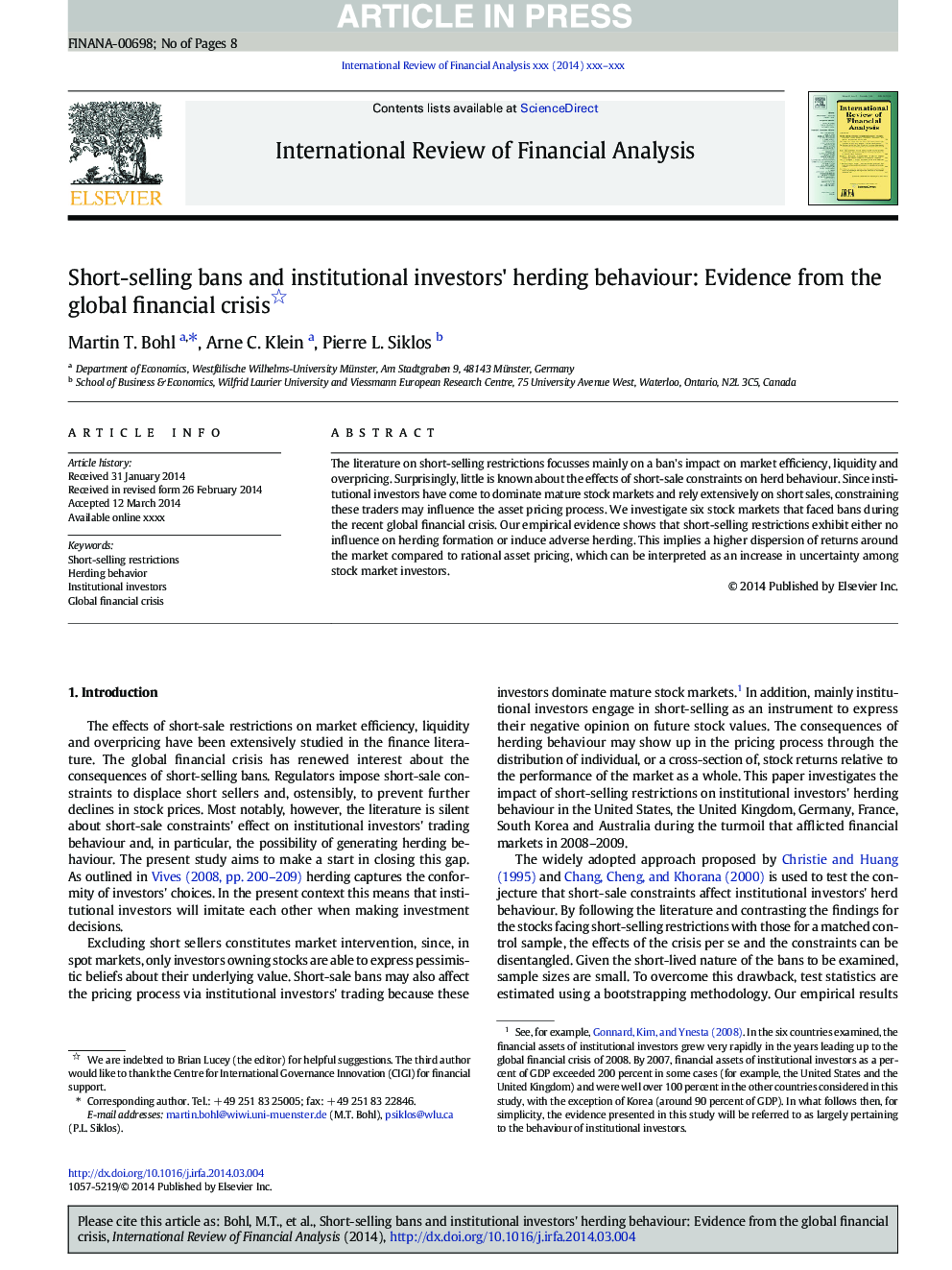| Article ID | Journal | Published Year | Pages | File Type |
|---|---|---|---|---|
| 5084912 | International Review of Financial Analysis | 2014 | 8 Pages |
Abstract
The literature on short-selling restrictions focusses mainly on a ban's impact on market efficiency, liquidity and overpricing. Surprisingly, little is known about the effects of short-sale constraints on herd behaviour. Since institutional investors have come to dominate mature stock markets and rely extensively on short sales, constraining these traders may influence the asset pricing process. We investigate six stock markets that faced bans during the recent global financial crisis. Our empirical evidence shows that short-selling restrictions exhibit either no influence on herding formation or induce adverse herding. This implies a higher dispersion of returns around the market compared to rational asset pricing, which can be interpreted as an increase in uncertainty among stock market investors.
Related Topics
Social Sciences and Humanities
Economics, Econometrics and Finance
Economics and Econometrics
Authors
Martin T. Bohl, Arne C. Klein, Pierre L. Siklos,
